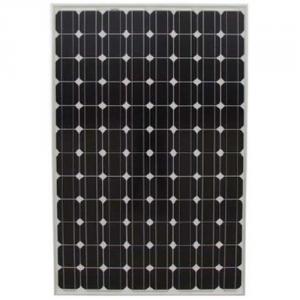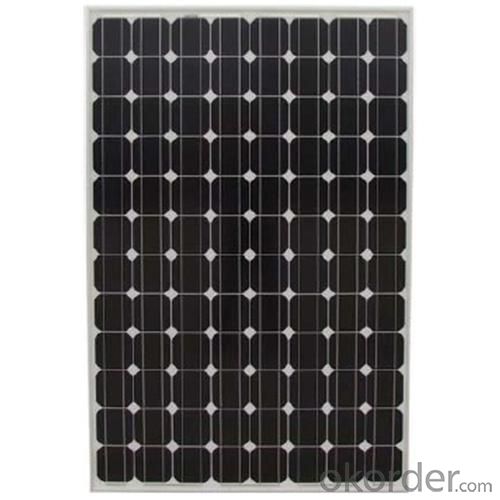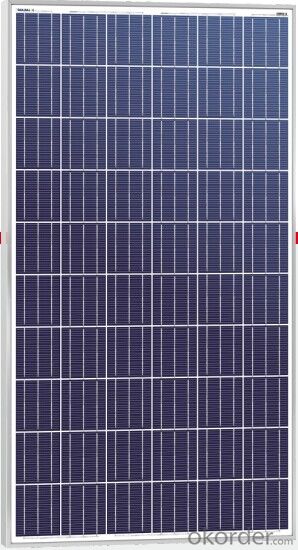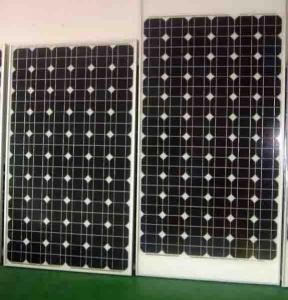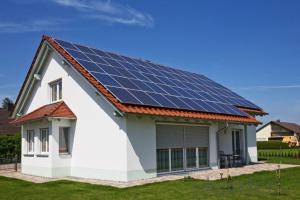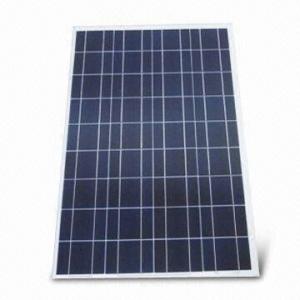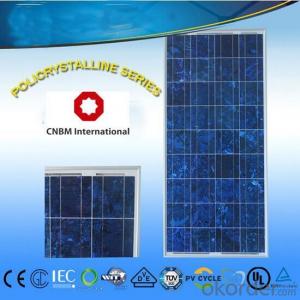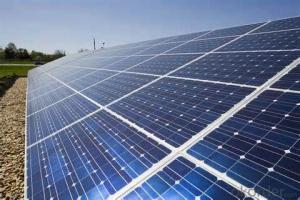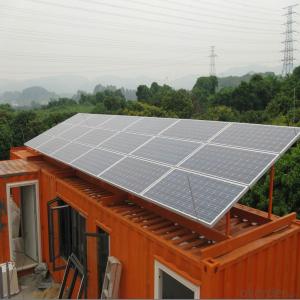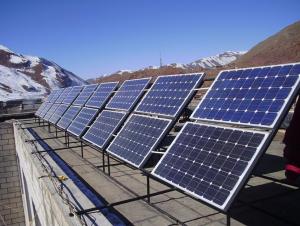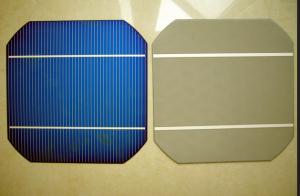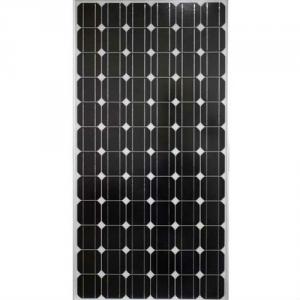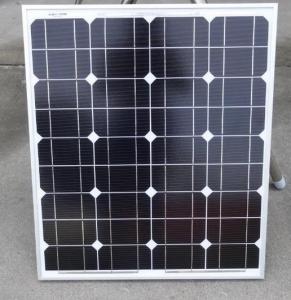Electric Solar Cells High Efficiency Polycrystalline PV Module 250W-260W
- Loading Port:
- China Main Port
- Payment Terms:
- TT or LC
- Min Order Qty:
- -
- Supply Capability:
- -
OKorder Service Pledge
OKorder Financial Service
You Might Also Like
Structure
High Efficiency Polycrystalline PV Module.250W-260W
Solar panel refers either to a photovoltaics (PV) module, a solar hot water panel, or to a set of solar photovoltaics modules electrically connected and mounted on a supporting structure. A PV module is a packaged, connected assembly of solar cells. Solar panels can be used as a component of a larger photovoltaic system to generate and supply electricity in commercial and residential applications.
Features
Nominal 20V DC for standard output.
Out standing low-light performance.
Heavy-duty anodized frames.
High transparent low-iron, tempered glass.
Rugged design to withstand high wind pressure, hail and snow load.
Aesthetic appearance.
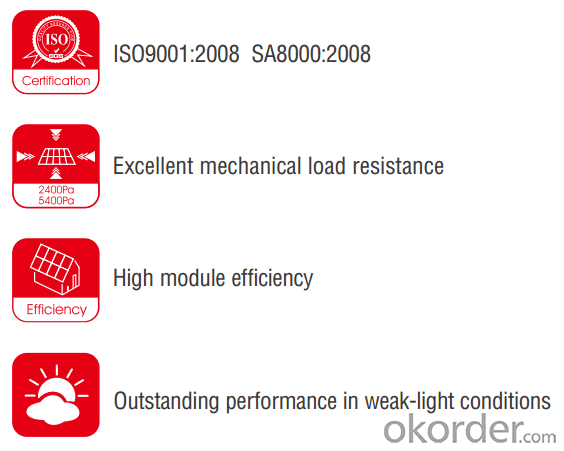
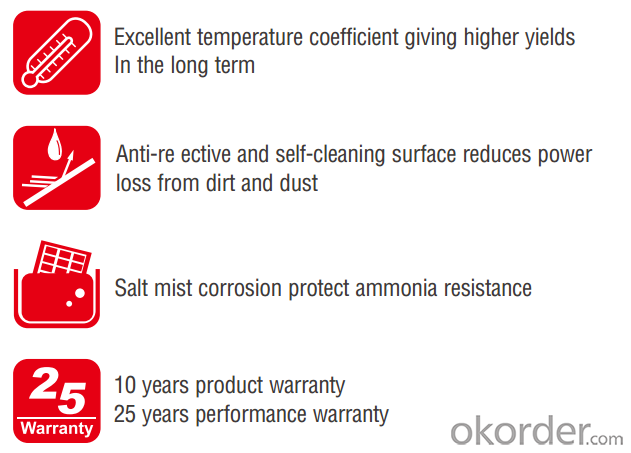

Images
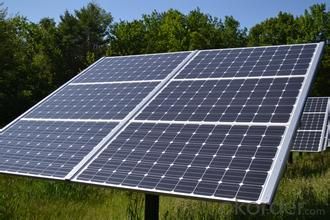
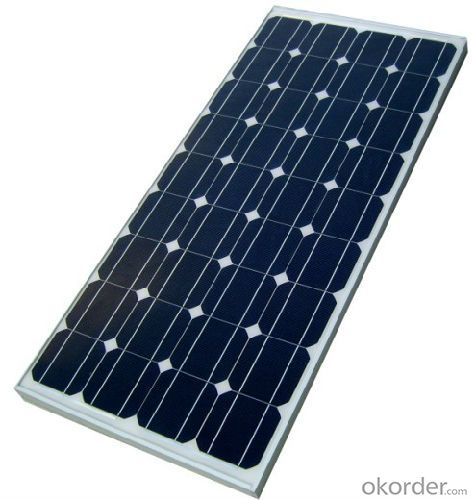
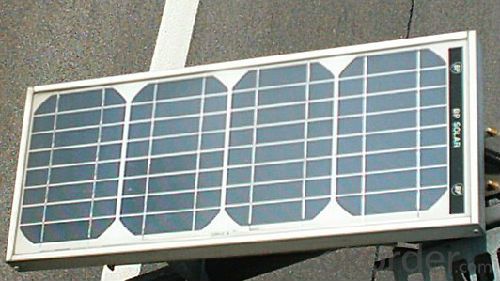
Specification
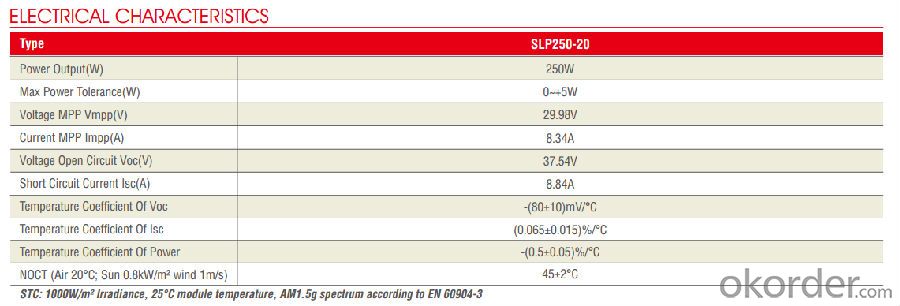

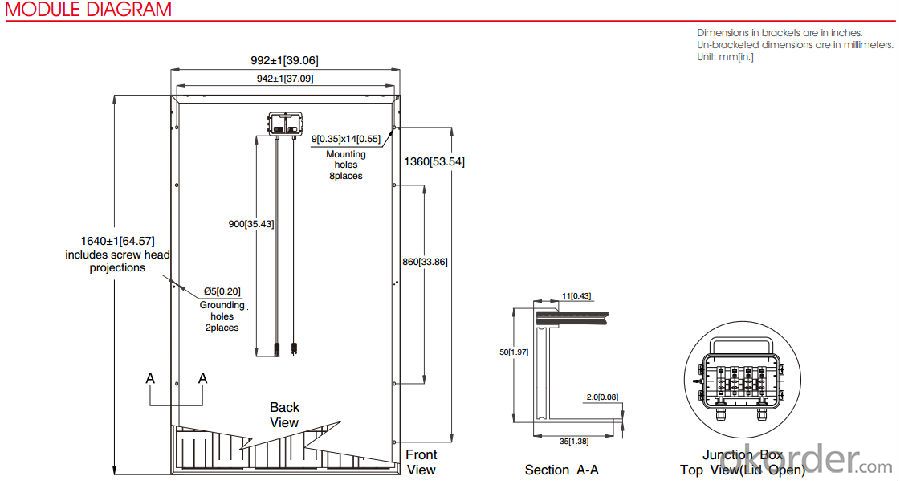
FAQ
Q:How to guarantee the quality of the products?
A:We have established the international advanced quality management system,every link from raw material to final product we have strict quality test;We resolutely put an end to unqualified products flowing into the market. At the same time, we will provide necessary follow-up service assurance.
Q:Can we visit your factory?
A:Sure,welcome at any time,seeing is believing.
Q:Which payment terms can you accept?
A:T/T,L/C,Moneygram,Paypal are available for us.
- Q: Can solar cells be used to power security systems?
- Yes, solar cells can be used to power security systems. Solar cells convert sunlight into electricity, which can be stored in batteries for continuous power supply. This makes solar cells an ideal and sustainable solution for powering security systems, especially in remote or off-grid locations where access to grid electricity may be limited.
- Q: What is the pollution of solar cells?
- cadmium mercury and other substances), zinc barrels if there is a paste in general electrolyte, its composition is mainly ammonium chloride and manganese dioxide, the middle of a carbon rod, the entire battery with asphalt seal cover, so that the battery Ingredients do not leak out. From this analysis we can see that the chemical battery mainly contains mercury, cadmium, lead, nickel, zinc, copper and so on heavy metals. As we all know, these heavy metals are harmful to the human body, such as: mercury: mercury can make the human body loose teeth, hair loss, finger jitter, nerve disorder
- Q: Can solar cells be used for off-grid power systems?
- Yes, solar cells can be used for off-grid power systems. Solar cells convert sunlight directly into electricity, allowing them to generate power in remote locations or areas without access to the traditional power grid. They are particularly well-suited for off-grid power systems as they are reliable, renewable, and require minimal maintenance. Additionally, advancements in battery storage technology have made it possible to store excess energy generated by solar cells for use during periods of low or no sunlight, further enhancing their suitability for off-grid applications.
- Q: What is the role of solar cells in powering electric vehicles?
- Solar cells play a crucial role in powering electric vehicles by converting sunlight into electricity. These cells are typically mounted on the roof or body of the vehicle, absorbing sunlight and generating electrical energy. This energy is then used to charge the electric vehicle's battery, providing an additional source of power and extending its range. Although solar cells alone may not be sufficient to fully power an electric vehicle, they help reduce reliance on traditional charging methods and promote sustainable and renewable energy usage.
- Q: How do solar cells perform in cloudy weather?
- Solar cells do not perform as efficiently in cloudy weather compared to sunny conditions, as they rely on direct sunlight to generate electricity. However, they can still generate some electricity, albeit at a reduced rate, as they can absorb diffuse sunlight and convert it into energy.
- Q: Can solar cells be used in floating solar farms?
- Yes, solar cells can be used in floating solar farms. Floating solar farms, also known as floating solar panels or floating photovoltaic systems, involve placing solar panels on bodies of water such as lakes, reservoirs, or even the ocean. These solar panels are designed to float on the water's surface and capture sunlight to generate electricity. Floating solar farms are increasingly being adopted as they have numerous advantages, including efficient land use, reduced evaporation, and increased energy production due to the cooling effect of the water.
- Q: What is the impact of solar cells on reducing air pollution from power generation?
- Solar cells have a significant impact on reducing air pollution from power generation. By harnessing energy from the sun, solar cells produce electricity without emitting harmful pollutants such as carbon dioxide, sulfur dioxide, or nitrogen oxides. This clean and sustainable energy source helps to mitigate the negative effects of traditional fossil fuel-based power generation on air quality, thus contributing to a healthier environment and reducing the overall carbon footprint.
- Q: How to get high voltage and high current output of solar cells?
- The high current solar cells means the high voltage, if you want to achieve that goal, you need to put the circuits inside the solar cells in serial-parallel.
- Q: Can solar cells be used for powering remote research stations?
- Yes, solar cells can be used for powering remote research stations. Solar cells, also known as photovoltaic cells, convert sunlight into electricity, making them an ideal choice for locations where grid connections are impractical or non-existent. By harnessing the power of the sun, solar cells can provide a reliable and sustainable source of energy for remote research stations, ensuring continuous power supply for various scientific activities and equipment.
- Q: How can I describe solar cells in a simple way?
- Solar cell is a specific battery.
Send your message to us
Electric Solar Cells High Efficiency Polycrystalline PV Module 250W-260W
- Loading Port:
- China Main Port
- Payment Terms:
- TT or LC
- Min Order Qty:
- -
- Supply Capability:
- -
OKorder Service Pledge
OKorder Financial Service
Similar products
Hot products
Hot Searches
Related keywords
